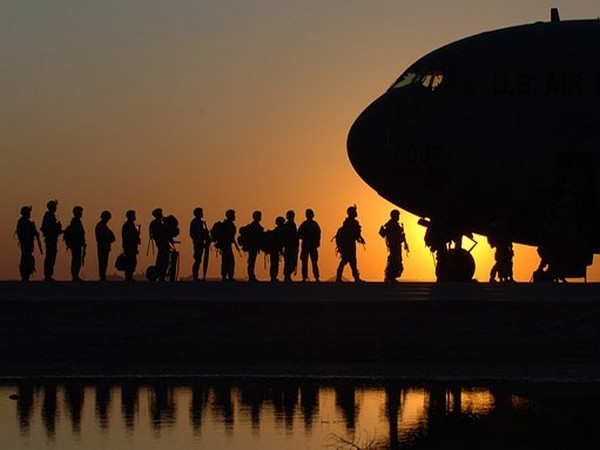UN Experts Condemn US Extrajudicial Killings at Sea in ‘Narco-Terrorism’ Strikes
The strikes, carried out against alleged members of the Venezuelan criminal organization Tren de Aragua, have raised alarm over the expanding scope of Washington’s so-called “war on narco-terrorism.”

A group of United Nations human rights experts have sharply condemned the United States’ extrajudicial execution of 14 people during two military operations in the Caribbean Sea earlier this month, warning that the actions represent a grave violation of international law. The strikes, carried out against alleged members of the Venezuelan criminal organization Tren de Aragua, have raised alarm over the expanding scope of Washington’s so-called “war on narco-terrorism.”
Deadly Strikes on Civilian Vessels
On 2 September 2025, U.S. naval forces sank a civilian vessel in international waters, killing 11 people on board. The U.S. President later announced that the operation was a “kinetic strike against positively identified Tren de Aragua narco-terrorists” who were allegedly transporting illegal narcotics.
Less than two weeks later, on 15 September 2025, U.S. forces destroyed another vessel, killing three more people. In both cases, U.S. officials admitted that the vessels could have been intercepted but said they were deliberately destroyed to serve as a deterrent to drug traffickers.
International Law Violations
The UN experts, in a statement delivered to the 60th session of the Human Rights Council, declared that the killings amount to unlawful executions.
“International law does not allow governments to simply murder alleged drug traffickers,” the experts stressed. “Criminal activities should be disrupted, investigated and prosecuted in accordance with the rule of law, including through international cooperation.”
They underscored that under human rights law, lethal force is only justified in cases of immediate self-defense or to protect others from imminent harm. The U.S. strikes, they argued, failed to meet these standards and instead violated:
-
The right to life, as enshrined in international human rights treaties.
-
The law of the sea, which prohibits unprovoked attacks on ships in international waters and requires a law enforcement—not military—approach when intercepting vessels.
-
State sovereignty, as the operations occurred in international and potentially foreign waters without consent or UN authorization.
The U.S. Position and Terrorism Designations
The U.S. Government has accused Tren de Aragua, a Venezuelan criminal syndicate with transnational reach, of engaging in narco-trafficking and violent operations, designating it a Foreign Terrorist Organization in mid-2025. U.S. officials have claimed the group is part of a Venezuelan-backed effort to undermine American security, even referring to it as an “invasion” or “predatory incursion” of the United States.
In August 2025, the U.S. President reportedly signed a classified order authorizing military force against Latin American drug cartels newly labeled as terrorist groups. These include organizations in Mexico and Venezuela, such as Cartel de los Soles, which Washington controversially claims is led by the Venezuelan President himself.
Risk of Escalation in Latin America
The UN experts warned that such unilateral designations and military actions risk dragging the United States into a dangerous confrontation with sovereign governments in Latin America.
“There is no evidence that this group is committing an armed attack against the U.S. that would allow the U.S. to use military force in national self-defense,” the statement read. “International law does not permit the unilateral use of force abroad to fight terrorism or drug trafficking.”
The deployment of substantial U.S. naval, air, and land forces in the Caribbean suggests that Washington is preparing for broader operations in the region, potentially targeting both non-state actors and state authorities.
Calls for Accountability and Reparations
The experts issued a strong appeal for the U.S. to reverse its approach:
“We urge the United States to retreat from its lawless ‘war on narco-terrorism.’ Under international law, the U.S. must independently investigate those who ordered and carried out these murders, prosecute perpetrators—no matter how senior in government—provide reparations to the victims’ families, and guarantee that such acts will never occur again.”
The statement emphasized that impunity for such actions erodes global norms, undermines the UN Charter, and sets a dangerous precedent for other states to justify similar extrajudicial killings under the guise of counterterrorism.
Contact with Governments and Next Steps
The experts confirmed they have contacted the Governments concerned, signaling the possibility of broader international scrutiny. The Human Rights Council is expected to deliberate further on the issue, with some states likely to push for a formal investigation into the legality of the U.S. actions.
As tensions escalate, the case could test the limits of international law in governing military actions against non-state actors, particularly in the murky intersection of drug trafficking and terrorism designations.
ALSO READ
Trump Announces Military Action Against Venezuelan Drug Vessels
India and Venezuela Strengthen Ties with Digital and AI Collaborations
Crackdown on Foreign Nationals: India Targets Overstaying Expats in Drug Trafficking Probe
UPDATE 2-Trump says US struck another alleged Venezuelan drug vessel, killing three
UPDATE 1-Trump says US struck another Venezuelan drug vessel, killing three










